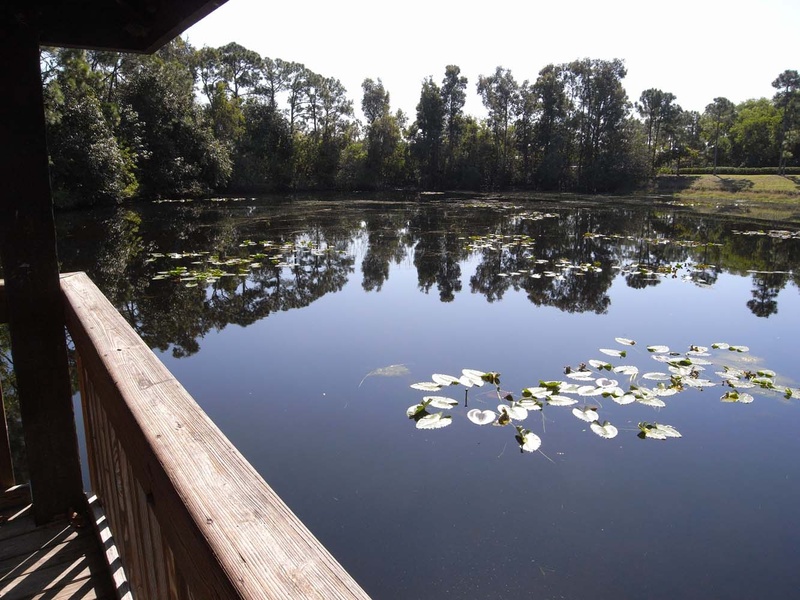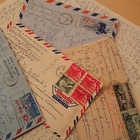Morikami Sukeji, who traveled to America as a member of the Yamato Colony in South Florida and remained there alone until the end of his life after the colony was disbanded, continues to write letters to his sister-in-law and her family, whose husband (Sukeji's younger brother) had died after the war. Sukeji wavers for many years about whether to return to Japan or stay, but then he says he will go to South America, or considers naturalizing... His intellectual curiosity remains as strong as ever, and he asks for books to be sent to him from Japan.
* * * * *
January x, 1959
To the Andean Plains
Mi-san, as soon as I finish this farm work, I will go to South America. The destination is an unexplored land. 20,000 feet above sea level, the Andean prairies, the Amazon rainforest with scorching heat of 150 degrees. I am already old and in poor health. I may die on the way.
There is nothing more fortunate for a human being. The plan is to continue for a year, but it may take longer. My body is weak, but my spirit is still strong.
Apparently you sent me some wakame seaweed from Miyazu, but it hasn't arrived yet. My illness has no choice but to undergo an incision surgery. Also, after eating, my lower abdomen hurts so much that it's bothering me. It's gotten a little chilly tonight, so I'm writing this letter with an electric heater between my legs.
I worked all day on New Year's Day. I planted seeds in the seedbed. I spent the whole day eating only soup and milk, imagining you all eating ozoni with gusto.
January x, 1959
A strong desire to read
Aki-chan, please send us the items listed on the left. I will send the payment as soon as I receive your statement.
- Tropic of Capricorn (by Lévi-Strauss) \360
- Naked Topography (by Yasaburo Ikeda) \160 Published by Kodansha
- Kyoto City and Kyoto Prefecture Maps (latest edition)
It's gotten cold in Florida all of a sudden, and I'm sensitive to the cold, so I'm using a heater on my hands. My friend in Miami sent me some canned Japanese mochi. I'll be able to enjoy New Year's snacks next Sunday.
The seaweed hasn't arrived yet. Please send me a good English-Japanese and Japanese-English dictionary. A small one for students. I didn't use a dictionary for a long time, so I forgot how to write and couldn't write letters properly. I bought one each when I started learning ABC fifty years ago, but they've long since disappeared. Right now it's 51 degrees Fahrenheit outside, but in the morning it will drop to about 35 degrees. I heard that there are electric shirts and electric pants in Japan, but we don't have them here yet.
January 23, 1959
< Going to South America in July or August >
Thank you for your letter, Aki-chan. You don't have to be so serious. I just want you to become a good person.
Then we will go to South America in July or August. The climate is the opposite of North America, and it is the middle of summer in South America now. There is no need to worry because we will be accompanied by someone with experience in uncharted territory exploration.
The school lunch is quite a treat. When I was in elementary school, everyone brought their own lunch and the only side dishes were pickled plums or pickled radish. No wonder all Japanese people became short.
I received the postage stamps. They are 70 yen each, so that's 700 yen, or about 2 dollars in US currency. I owe you this. I'll pay you back when the book I ordered arrives.
The weather in Florida continues to be bad, with a strong north wind and heavy rain. It's unbearable because it's only about 60 degrees (15.5 degrees Celsius) even during the day. In the north, it's so cold that many people froze to death.
I want to go to Japan once. I wonder when that will be. At my age, I want to do this and that. There are so many things I want to do, but I can't do anything. I envy young people.
February 5, 1959
< Enjoying "Soba Boro" >
Thank you, Mi-san, for the wonderful product. It just arrived in good condition. I immediately tried the Kyoto specialty soba boro. What a good taste. Japanese people really like Japanese things. These cookies are just too sweet and have no real flavor. Also, the elegance of Japanese packaging is something no other country can match.
What a satirical painting of persimmons and frogs! I never get tired of looking at it. I decided to frame it. It's the best stimulation for me, who always fails.
I haven't tried the Hashidate specialty, Yakiwafu (?) yet. I just can't open the can.
I am in great health and leading a busy life. Lately, the weather has been bad so work has not progressed very well. Please take care of yourself. Thank you in advance.
March 14, 1959
< I fell asleep with my shoes on >
I'm still busy every day. I work from morning to night, and it's not easy. I get home after 7 o'clock in the evening, and it's already dark. I'm hungry and tired, so I take a break and lie down on the couch with my shoes on, and sometimes I fall asleep.
I wake up after 10 o'clock, or sometimes after 12 o'clock, and then I slowly start preparing dinner. I also have time to read the newspaper now. I usually wake up around 5 o'clock in the morning. I'm in very good health these days. But I spend my time dreaming about the near future.
Although there are some things, my feelings are the same as they were 50 years ago. But sometimes I find it unpleasant. Humans are selfish, and there is no sense of duty or self-indulgence. In particular, the irresponsibility and impudence of teenagers irritates me, all the more because I believed in their innocence. It is inevitable that my opinion of them will gradually change.
" Not all people are the same "
This winter, the cold weather has not come, and the visitors were very satisfied. The books and maps I ordered from Akiko arrived two or three days ago. The maps of Tango have changed a lot. The mountains and rivers are the same as they were in the past, but the people are not the same (note) . I sometimes think about this. Ah, the night is getting quite late. I will excuse myself for tonight. Please take good care of yourself.
(Note) A line from the Chinese poem "In Place of the Old Man Who Laments His White Hair" by Liu Tingzhi, a poet of the early Tang Dynasty in China, goes, "Year after year, the flowers are similar, but year after year, people are different." Sukeji casually slips in this line, "People are different = people are not the same."
There is still a lot of space left. I'll write a little bit at the beginning. A few days ago, I found my pocket watch that I dropped in the field, but it was crushed by a tractor.
It was cheap, but it was a good product and I did a good job. I had no choice but to buy a new one today. All my employees are paid by the hour, so they need an accurate watch. I have one black employee who works nine hours a day and I pay him $7. I grow a lot of vegetables for my family, but I don't have the skills to cook, so I only use a little of them and give most of them to friends and neighbors. They are quite expensive if you buy them at the store.
Today, there was a storm in Tohoku all day. It has calmed down a little tonight. The sky is cloudy all over. It is forecast to rain occasionally. Well, good night.
March 28, 1959
" A wasteful nature that cannot spend its time playing "
Dear Mi-san, the parcel arrived today. Thank you for all the unusual items. It's just after 11:30pm. I just woke up from a nap. I'm very tired from planting every day from morning to night.
I'm a bit silly, and when asked why I work so hard, it's hard to answer. I can't live a life of leisure, I'm a loser, and when I get passionate about something, I push myself too hard.
There are only three more days left in this month. Apparently the Crown Prince will be getting married on the 10th of next month. I'm sure society in Japan will be a bit more lively. I'm feeling sleepy again. I'll have some tea and rest. First of all, I'd like to thank you.
September 26, 1959
"The idea of going to South America, which he had once been thinking about, was rarely mentioned in his letters after that. It seems that he was thinking about naturalizing first before going there."
<I decided to naturalize and started preparing for the exam >
I still feel lazy. I have nothing to do. This is the first time I've ever felt this way, and I'm wondering why. My head is so blank and my memory is so bad that I forget important things immediately unless I write them down in my notebook.
After careful consideration, I decided to become a naturalized citizen and started preparing for the naturalization exam, but because I have a bad memory, I decided to stop taking it for the time being with no hope of passing. Even though it is an exam, it is not an easy one. I have to memorize high school level information such as the national polity, history, geography, and politics of this country.
I'm still as thin as ever. I drink milk, which I don't really like, mixed with water, and take other nutritious foods, but it's not helping at all. I can't eat meat because I don't have any teeth, and I can't even taste my favorite pickles.
Many people in this country suffer from high blood pressure, especially middle-aged men. This disease does not respond well to cold, so the number of people migrating from the north is increasing year by year.
October 6, 1959
"It doesn't really matter whether you naturalize or not ."
Dear Mi-san, I have just received your letter. I am glad to hear that everyone is safe. It is very calm here, but the heavy rain is a problem.
I spent a huge amount of money on clearing the land and buying farming tools, but my health is not as good as it used to be, so I decided to stop growing crops. The serious damage seems to be caused by my teeth and intestines, so I will take care of them first.
As for naturalization, I don't really care if I stay the way I am or become an American, but it will be convenient when I bring my children here. I miss my hometown no matter how many years pass, but after half a century, it feels like a foreign country. But I might change my mind once I go back.
(Titles omitted)
© 2019 Ryusuke Kawai







